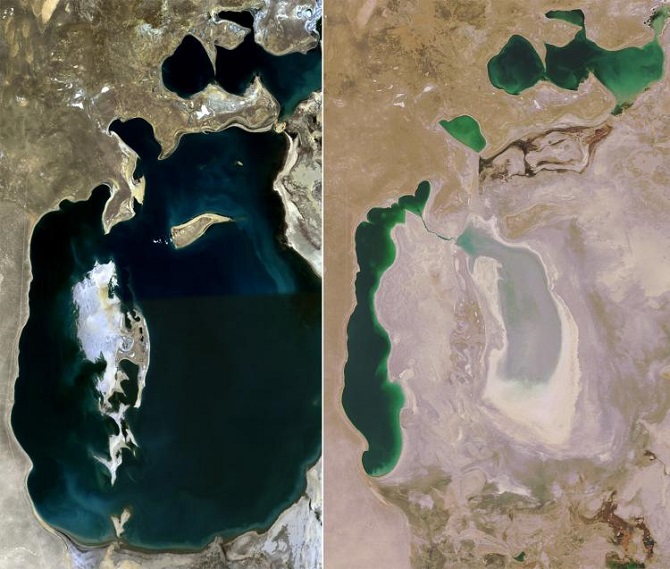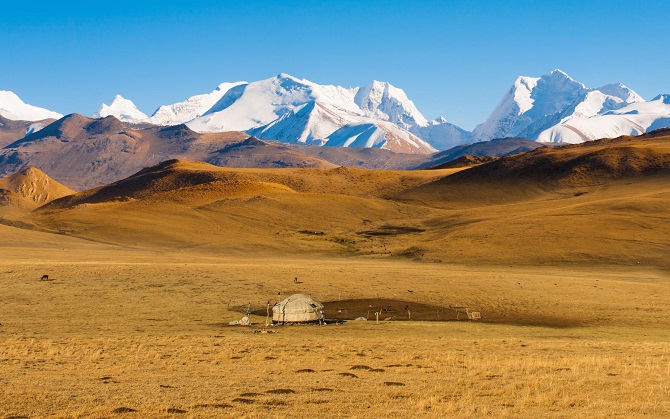HR/VP Borrell reaffirms EU’s engagement to strengthen cooperation with a region that has already been hit hard by climate change
Climate change has already hit hard in Central Asia. Over the past three decades, average annual temperatures in the region rose by 0.5 degrees Celsius, causing droughts and water scarcity that have disrupted entire ecosystems. The most dramatic example is the Aral Sea, once the world’s fourth largest lake, now vanished off the face of the Earth. Reverting that terrible trend is the main purpose of the Green Central Asia Conference(link is external), held in Berlin on Tuesday. The EU High Representative and Vice President Josep Borrell attended the forum to reaffirm the EU’s engagement to strengthen cooperation with Central Asia on this and many other fronts.
“Climate change is geopolitical challenge, affecting all of us, including in security terms. Central Asia one of world’s most vulnerable regions. If we take decisive action now, we can avoid predictable – and predicted – disasters coming our way”, said Borrell at the opening of the conference. “We need to step up science-based, collaborative solutions across the region. In that effort, EU is real partner for Central Asia and Afghanistan”. Last year, the EU adopted a new Strategy on Central Asia with the specific aim to step up cooperation with the region so that it becomes a more resilient, prosperous, and interconnected space.
The Green Central Asia Conference, a regional initiative launched by the German Foreign Ministry, aims to support dialogue on climate change and the risks associated with it in the region, formed by Afghanistan, Kazakhstan, Kyrgyzstan, Tajikistan, Turkmenistan, and Uzbekistan.
Read also
Climate change is not just an environmental problem: it is a catastrophe for entire communities and a growing security risk in this particular region, where global warming has a severe impact on glaciers and on natural resources such as water, land and soil. This has consequences for food security and affects migrant flows and the stability of Central Asia as a whole.

Aerial views of the Aral Sea. On the left, the lake in 1989; on the right, what was left of it in 2008.
“The EU can offer a genuinely regional and cross-border approach to Central Asia’s challenges – unlike some of your other partners”, the HR/VP said. “We have experiences to share. For example, our emissions trading system can help regions adjust, as they move away from coal, and we can share our know-how in clean, renewable energy sources. We also have the means to help, as the world’s foremost climate finance donor. Together with our Member States, we provide over 40% of the world’s public climate finance”.
The EU is already involved in several regional EU initiatives focused on tackling the negative consequences of climate change:
EU-Central Asia Platform for Environment and Water Cooperation
Established in 2009, it is one of the main regional programmes promoting cooperation on a highly sensitive issue in the region. Shrinking glaciers have increased competition over water resources, and land degradation alone has an estimated cost of about €6 billion a year, according to the UNDP. Its Working Group will hold its next meeting in Brussels on 12-13 February.
Central Asia Water and Energy Programme (CAWEP)
A multi-donor Trust Fund that has facilitated inter-governmental cooperation on the management of common water resources such as the Aral Sea basin. Its next phase will see the inclusion of Afghanistan, a country where 90% of the water systems are cross-border.
Supporting sustainable uranium legacy sites
The increasingly frequent floods and landslides threaten to cause the disastrous spread of toxic and radioactive waste from uranium legacy sites into the region’s trans-boundary rivers. The EU has invested €41 million to support plans for the seven most high priority sites in Kyrgyzstan, Tajikistan, and Uzbekistan.
In 2020, the EU will launch a new project focus on strengthening the ability of Uzbekistan, Kyrgyzstan and Tajikistan to address the security implications of climate change in the Fergana Valley.
European Union
























































